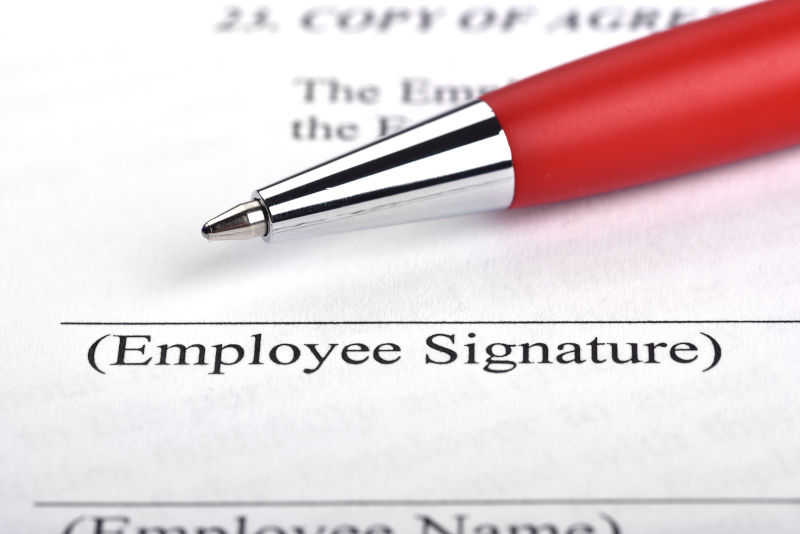Many individuals carry out voluntary work for a variety of reasons. Sometimes it will be a “one off” but other arrangements are more regular and routine.
But do volunteers have any employment rights and what can you do if you believe you are being taken advantage of?
Employment Status
Different employment rights attach to different types of employment status i.e. whether you are an employee, a worker or self-employed (see Employment Status). “Volunteers” i.e. those who work unpaid for the benefit of others, could also be added to this list.
Unfortunately, whilst the law is clear as to what rights attach to the different categories of employment status, it is not always clear whether an individual who is classed as a volunteer, is actually a worker, or even an employee.
Who is an employee?
Under employment legislation an employee is someone who works under a contract of employment.
A contract of employment is a contract of service or apprenticeship. This means a contract under which you are working for someone else and under their direction rather than offering services you provide to them.
The contract can be a written contract or one that has been agreed verbally. Not having a written contract does not stop you from being an employee.
The tests
An employment tribunal will look at different factors to decide if you are an employee.
But you must be able to show the following:
- a contract (written, verbal or implied) obliging the organisation to provide work and you to carry it out;
- personal service (i.e. you have to carry out the work rather than someone else);
- that the organisation has control in the relationship; and
- other factors point towards you being an employee.
Taking the above into account, if you are a volunteer, the following factors will help you assess whether the relationship you have is potentially one of employment:
- Do you have a written agreement with the organisation and what does it say? How are the terms worded? Do they create legal obligations (which point towards employment) or are they just expectations or guidance?
- Can you refuse to do the work or certain tasks? If you can’t, that is another factor pointing to employment.
- Do you decide when you work? If you have to attend at a certain time and place, again, this is suggestive of an employment relationship.
- Is there any agreement about payment? If so, what payment do you receive? A payment that is referred to as being for “expenses” but which is not a genuine reimbursement of actual expenses incurred points towards being paid for the services provided (and being an employee).
- Do you regularly receive other benefits or gifts that could be regarded as payment for your services? Again, this might suggest you are being paid to carry out your work and indicative of being an employee.
The rights of employees
If you can establish that you are an employee, you will have a number of employment rights although many will depend on how long you have worked for your employer.
These are some of the rights you have as an employee:
- the right to a written statement of your terms of employment;
- the right to a minimum period of notice to end your employment;
- the right not to be unfairly dismissed (see Unfair Dismissal Claims);
- the right to a redundancy payment (see Redundancy);
- the right to request flexible working; and
- various “family” based rights such as rights to maternity, paternity or shared parental leave; adoption leave; time off for dependants and parental leave (go to our Blog for information on these issues).
As all employees are also “workers” they also have the rights workers enjoy, such as the right to paid holiday, which we look at below.
Who is a worker?
Sometimes, it’s not possible to establish that you are an employee, but you might be able to show that you are a “worker”. A “worker” falls between being an employee and being genuinely self-employed.
Again, the law does not explain who will be classed as a worker very clearly.
To be a worker there must be a contract between the individual and the organisation; under the contract the individual must agree to perform personally any work or service; and the organisation must not be a client or customer of any business of the individual.
So, to be a worker, you must have agreed to do work yourself and that work must not be being done as part of your own business.
Unfortunately, this is a really uncertain area of law and the government may decide to change the labels and what they mean to make it clearer in the future.
The rights of workers
If you can show you are a “worker”, you will have the following rights:
- the right not to be discriminated against (see Discrimination Claims);
- the right to paid holiday (see Holidays and holiday pay – Q&A);
- rights in respect of how many hours you can be asked to work and what breaks you are entitled to (see How many hours can I work and what breaks should I get?);
- protection from being treated unfairly if you are a whistleblower (see Whistleblowing Claims); and
- the right to the national minimum wage (so long as you have a contract to personally perform the work or services and receive payment); unless you are classed as a “voluntary worker” under the national minimum wage legislation and only receive expenses.
As all employees are workers, all employees also enjoy these rights.
The rights of volunteers
If you cannot show you are an employee or a worker, your rights are, unfortunately, very limited. However, the organisation you volunteer with does have responsibilities in relation to your health and safety and regarding your personal data.
What can you do if you think you are a worker or an employee?
To ensure you are in the best position:
- keep copies of any relevant documents such as contracts, letters and emails that set out any terms that have been agreed with you by the organisation with whom you volunteer; and
- if something is only agreed verbally, confirm it in writing;
Often the first step will be to raise your concerns in writing, setting out the reasons why you believe you are an employee or worker and what rights you wish to assert. Issuing a claim in the employment tribunal to enforce your employment rights may also be an option if the matter cannot be resolved.
At Truth Legal we have specialist employment solicitors with experience of dealing with issues involving volunteers. Please get in touch if you need assistance.
Further Reading
From one of the UK’s most read legal blogs.











